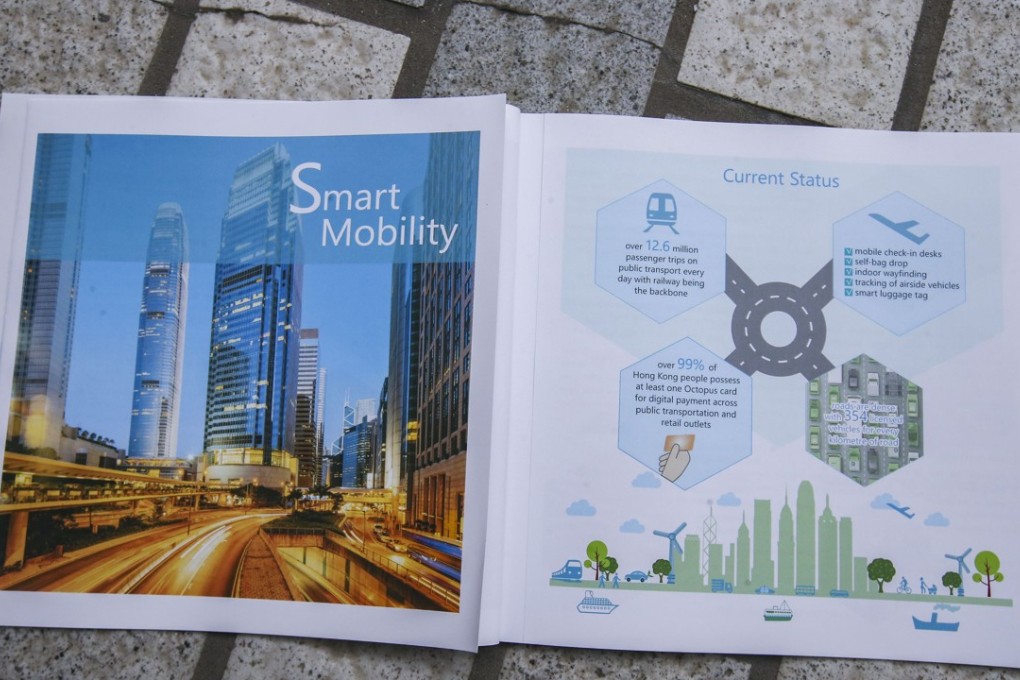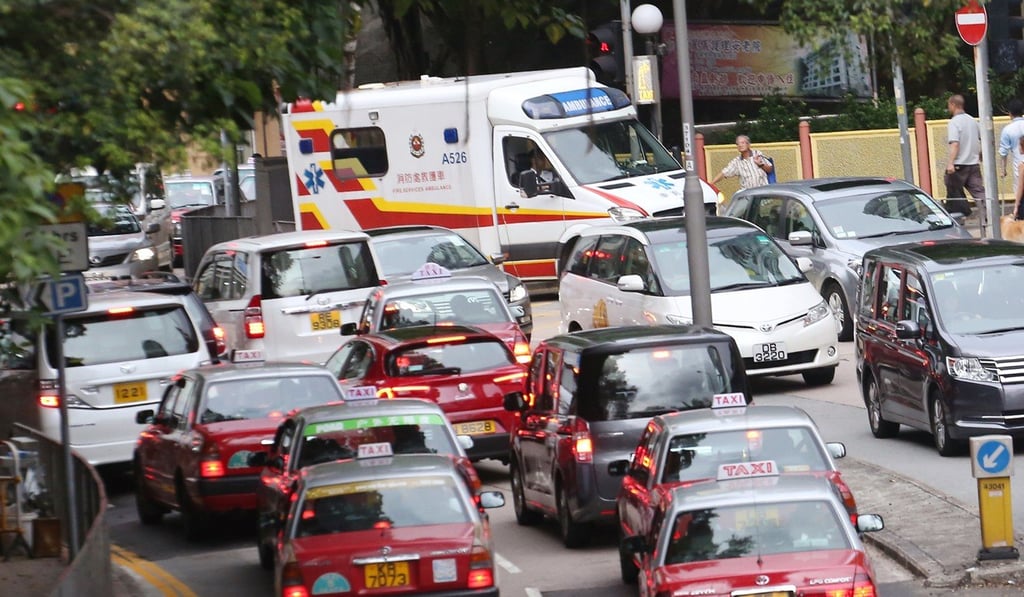Advertisement
A smarter way to get Hong Kong moving again: put pedestrians and road-based public transport first – not cars
Evan Auyang says the futuristic-looking smart mobility plan does not address the city’s main transit problems – such as overused MTR lines, vested interests among licensed operators and too many private cars
Reading Time:2 minutes
Why you can trust SCMP

Hong Kong’s smart city blueprint is the latest forward-looking policy from Chief Executive Carrie Lam Cheng Yuet-ngor’s administration. However, there seems to be a non-sequitur between specific initiatives and the higher-level mission. Take the “smart mobility” section. It begins by creating an intelligent app, installing in-vehicle units, then moves onto traffic sensors, real-time traffic information and multiple payment systems for on-street parking. It is difficult to see how these all fit together.
The blueprint signals inadequate knowledge of the mobility issues facing Hong Kong, or worse yet, complacency. The Transport and Housing Bureau has said 90 per cent of transport journeys take place on public transport, without recognising this system’s steady deterioration. Government data shows an 11 per cent rise in public transport use in the past 10 years. But, in the same decade, the number of private cars grew by 49 per cent.
With the MTR’s busiest lines nearly maxed out, the government must recognise that the transport policy of building railways as a one-size-fits-all solution has run its course. Cities with similar problems, like Singapore, adopted new policies like expanding road-based mass transit systems, introducing ride-sharing services and pushing for more cycling and walking. And its private cars growth target is set at zero.
Advertisement
The smart mobility blueprint offers good initiatives that do not add up to a coherent policy. The government recognises uncontrolled private car growth as a major issue, yet has not adopted recommendations like raising the first registration tax.

Right road must be taken on Hong Kong parking
It also probably recognises the need to expand road-based public transport, but could not align service providers’ conflicting interests to do so. There is significant demand for services like Uber, but the government’s ineffectual recommendation was introducing 600 premium taxis.
Advertisement
Advertisement
Select Voice
Choose your listening speed
Get through articles 2x faster
1.25x
250 WPM
Slow
Average
Fast
1.25x